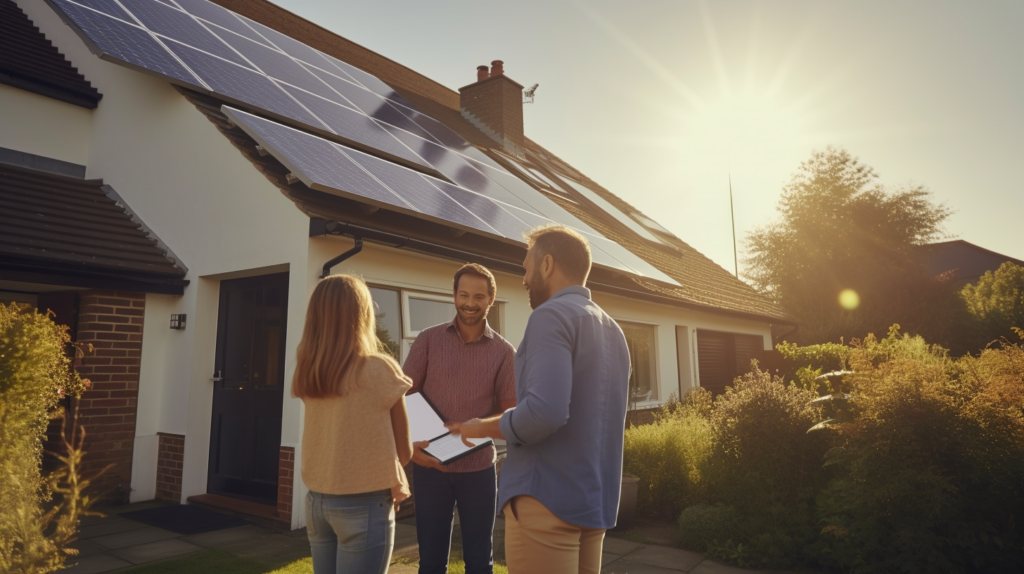
If you’re a residential homeowner in South Africa considering solar and battery backup energy solutions for your home, it’s important to understand the different options available and their associated costs. In this guide, we’ll provide you with a comprehensive overview of solar panel prices in South Africa, helping you make an informed decision.
What Are Some Factors That Will Affect The Cost Of Solar Panel Prices?
Before we dive into the specific prices, it’s essential to understand the factors that can influence the cost of solar panels in South Africa. These factors include:
- Solar Panel Type: There are different types of solar panels available, such as monocrystalline, polycrystalline, and thin-film. Each type has its own advantages and price range.
- Panel Efficiency: The efficiency of a solar panel refers to how effectively it converts sunlight into electricity. Higher-efficiency panels tend to be more expensive.
- System Size: The size of the solar panel system you choose will impact the overall cost. Larger systems will generally cost more.
- Installation Costs: The cost of installing solar panels can vary depending on factors such as the complexity of the installation, the type of roof, and any additional equipment required.
- Inverter Type: Inverters are an essential component of a solar panel system, converting the direct current (DC) generated by the panels into usable alternating current (AC) electricity. The type and quality of the inverter can affect the overall cost.
Comparing Solar Panel Prices
Now that we’ve covered the factors that can influence solar panel prices, let’s compare the average prices of different types of solar panels in South Africa:
- Monocrystalline Solar Panels: These panels are known for their high efficiency and sleek appearance. On average, monocrystalline solar panels in South Africa can range from ZAR 8,000 to ZAR 15,000 per panel.
- Polycrystalline Solar Panels: Polycrystalline panels are slightly less efficient than monocrystalline panels but are more affordable. The average price of polycrystalline solar panels in South Africa is around ZAR 6,000 to ZAR 12,000 per panel.
- Thin-Film Solar Panels: Thin-film panels are the least expensive option but also have the lowest efficiency. The average price of thin-film solar panels in South Africa is approximately ZAR 4,000 to ZAR 8,000 per panel.
It’s important to note that these prices are just averages and can vary depending on various factors, including the brand, quality, and warranty of the panels.
Additional Costs to Consider
In addition to the cost of the solar panels themselves, there are a few other costs to consider when installing a solar panel system in South Africa:
- Battery Backup: If you’re interested in having a battery backup system to store excess energy, you’ll need to factor in the cost of batteries, which can range from ZAR 10,000 to ZAR 30,000 or more, depending on the capacity and brand.
- Mounting and Racking: The cost of mounting and racking equipment will depend on the complexity of the installation and the type of roof. On average, you can expect to pay around ZAR 5,000 to ZAR 10,000 for these components.
- Inverter and Other Equipment: As mentioned earlier, the cost of the inverter and other equipment, such as wiring and monitoring systems, can vary. On average, you can expect to pay around ZAR 10,000 to ZAR 20,000 for these components.
When considering solar panel prices in South Africa, it’s important to consider the various factors that can influence the cost. By understanding the different types of solar panels available and their associated prices as well as considering additional costs such as batteries and installation equipment, you can make an informed decision that suits your budget and energy needs.
We’re solar panel suppliers and installers here at Abela Soalr so reach out to us now to get an accurate quote and a professional installation. Investing in solar panels can not only help you save on electricity costs but also contribute to a greener and more sustainable future.

